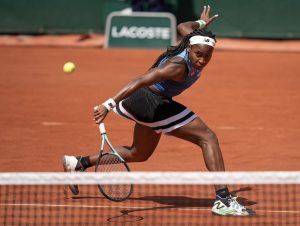Caroline Wozniacki rocketed her racquet to the moon and crashed onto the court. She had finally done it. Wozniacki won 7-6(2), 3-6, 6-4 the 2018 Australian Open final 7-6(2), 3-6, 6-4 over Simona Halep. meant that she was a slam champion.
Yet, what did that really mean in the grand scheme of things? Looking at a WTA singles Grand Slam, players need to win seven matches to take home the trophy. But, WTA tournaments can have similar requirements. For instance, unseeded players at Indian Wells also need to win seven matches to win the tournament and seeded players must win six matches, just one less than a grand slam.
Earlier this year, unseeded Bianca Andreescu showcased this hard road to the title. She won seven matches in a row to win her first Premier Mandatory title. The entry lists for a big-time WTA event below the grand slam level are also tighter than for grand slams, meaning that players will face higher-level players in these elite WTA events. This was showcased during Andreescu’s run, with the Canadian having to take down players such as Dominika Cibulkova, Garbine Muguruza, Elina Svitolina, and Angelique Kerber to win the title.
Caroline Wozniacki: A career without a crown jewel
Before hoisting the Australian Open trophy, Wozniacki had already won two of those Premier Mandatory events, Indian Wells and Beijing. She had won the WTA Finals. She was the champion at three Premier 5 events, the WTA tournament level just below Premier Mandatory.
Wozniacki was year-end World No. 1 in 2010 and 2011. She won 27 WTA titles in total before the 2018 Australian Open and reached two Major finals, the 2009 and 2014 US Opens. There was no shame in losing either of those finals, as the losses came to all-time greats Kim Clijsters and Serena Williams.
Yet, in a December 2018 interview with Vogue’s Louisa Thomas, Wozniacki states regarding being #1 without a Major, “Every day, getting questions: You’re number one, but you’ve never won a Grand Slam. Do you think you deserve it?”
Even before winning a Major title, Wozniacki had accomplished so much. She had won so many matches, climbed to the pinnacle of the WTA rankings, won so many big tournaments. She just hadn’t won of those events. And some were hounding as if she were some flailing failure.
There is some level of arbitrariness to the emphasis placed on majors for WTA players. In men’s tennis, majors are best-of-five, so there’s a marked difference between the grand slams and the regular tour events. But, in women’s tennis, majors are best-of-three, just like the rest of the tournaments on tour.
As demonstrated before, Andreescu’s Indian Wells win might as well be considered a major. A Premier Mandatory also has a fairly similar feel to a grand slam. The main stadium at the Indian Wells Tennis Garden is a 16,100 seat monstrosity. Andreescu arguably had a tougher road at Indian Wells compared to her win at the US Open, with wins over Wozniacki (ironically), Elise Mertens, Belinda Bencic, and Serena Williams her toughest opponents.
This makes the judgments of Wozniacki’s career before and after the Australian Open seem hollow. If Wozniacki lost one of those two match points 5-1 (40-15) down in the third set of her second round match against Jana Fett, should we really have looked at her career in such a different light than we do now? Her other extraordinary accolades wouldn’t have went away as the result of one point going differently.
Thankfully for Wozniacki, she doesn’t have to answer that question. However, it can’t be argued that tennis fans and the community on the whole looks at Wozniacki differently now than before Simona Halep sent that crosscourt backhand into the net on match point.
What a Grand Slam title adds
It was true that, especially after winning the 2017 WTA Finals, the only thing missing from Wozniacki’s career accomplishments was a major title. Yet, especially in women’s tennis, that’s all a Major should be. A checkmark in a long list of potential accomplishments.
Yesterday, in an interview with Good Morning America’s Robin Roberts, Wozniacki stated, “I am ready to move on to the next chapter in my life.” Wozniacki was retiring, effective as soon as her 2020 Australian Open campaign was over.
Wozniacki decided to end her career in the same place where she had her greatest victory. The place where the questions regarding her career and ultimately being a let down were put to rest. The place where she finally met the expectations placed on her by the tennis community.
Billie Jean King has stated that “Pressure is a privilege.” Yet, that doesn’t mean that the intense pressure placed on Caroline Wozniacki to win a major was entirely justified.
Unless Caroline Wozniacki wins the 2020 Australian Open, the pinnacle of her career will be winning the 2018 Australian Open. Yet, that shouldn’t overshadow Wozniacki’s remarkable career leading into that tournament.
Perhaps, at least in women’s tennis where slams are very similar to tour events, the distinction of being a slam winner or not should be de-emphasized. It feels arbritrary.
In Caroline Wozniacki’s case, the holistic journey of her career feels more important than that 2018 Australian Open title.
Perhaps that pinnacle was merely another rolling hill.
Main Photo from Getty.






